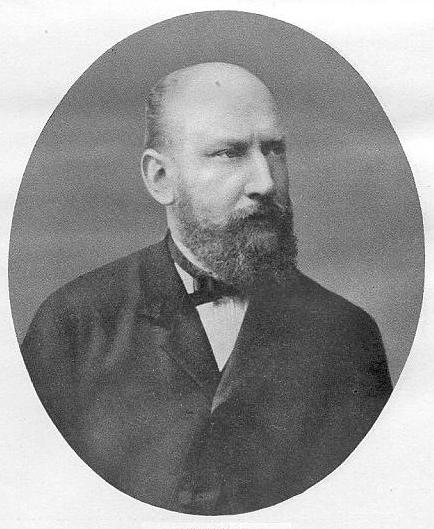|
Rudolf Schöll
Rudolf Schöll (1 September 1844 in Weimar – 10 June 1893 in Munich) was a German classical scholar. He specialized in the fields of Greek and Roman legal history, classical archaeology and Greek epigraphy.Biography of Rudolf Schöll @ NDB/ADB Deutsche Biographie He received his education at the as a student of and , followed by studies in |
Weimar
Weimar is a city in the state (Germany), state of Thuringia, Germany. It is located in Central Germany (cultural area), Central Germany between Erfurt in the west and Jena in the east, approximately southwest of Leipzig, north of Nuremberg and west of Dresden. Together with the neighbouring cities of Erfurt and Jena, it forms the central metropolitan area of Thuringia, with approximately 500,000 inhabitants. The city itself has a population of 65,000. Weimar is well known because of its large cultural heritage and its importance in German history. The city was a focal point of the German Enlightenment and home of the leading figures of the literary genre of Weimar Classicism, writers Johann Wolfgang von Goethe and Friedrich Schiller. In the 19th century, noted composers such as Franz Liszt made Weimar a music centre. Later, artists and architects such as Henry van de Velde, Wassily Kandinsky, Paul Klee, Lyonel Feininger, and Walter Gropius came to the city and founded the Ba ... [...More Info...] [...Related Items...] OR: [Wikipedia] [Google] [Baidu] |
University Of Jena
The University of Jena, officially the Friedrich Schiller University Jena (german: Friedrich-Schiller-Universität Jena, abbreviated FSU, shortened form ''Uni Jena''), is a public research university located in Jena, Thuringia, Germany. The university was established in 1558 and is counted among the ten oldest universities in Germany. It is affiliated with six Nobel Prize winners, most recently in 2000 when Jena graduate Herbert Kroemer won the Nobel Prize for physics. In the 2023 Times Higher Education World University Rankings, the university was awarded 189th place in the world. It was renamed after the poet Friedrich Schiller who was teaching as professor of philosophy when Jena attracted some of the most influential minds at the turn of the 19th century. With Karl Leonhard Reinhold, Johann Gottlieb Fichte, G. W. F. Hegel, F. W. J. Schelling and Friedrich Schlegel on its teaching staff, the university was at the centre of the emergence of German idealism and early ... [...More Info...] [...Related Items...] OR: [Wikipedia] [Google] [Baidu] |
Plato
Plato ( ; grc-gre, Πλάτων ; 428/427 or 424/423 – 348/347 BC) was a Greek philosopher born in Athens during the Classical period in Ancient Greece. He founded the Platonist school of thought and the Academy, the first institution of higher learning on the European continent. Along with his teacher, Socrates, and his student, Aristotle, Plato is a central figure in the history of Ancient Greek philosophy and the Western and Middle Eastern philosophies descended from it. He has also shaped religion and spirituality. The so-called neoplatonism of his interpreter Plotinus greatly influenced both Christianity (through Church Fathers such as Augustine) and Islamic philosophy (through e.g. Al-Farabi). In modern times, Friedrich Nietzsche diagnosed Western culture as growing in the shadow of Plato (famously calling Christianity "Platonism for the masses"), while Alfred North Whitehead famously said: "the safest general characterization of the European philosophica ... [...More Info...] [...Related Items...] OR: [Wikipedia] [Google] [Baidu] |
Proclus
Proclus Lycius (; 8 February 412 – 17 April 485), called Proclus the Successor ( grc-gre, Πρόκλος ὁ Διάδοχος, ''Próklos ho Diádokhos''), was a Greek Neoplatonist philosopher, one of the last major classical philosophers of late antiquity. He set forth one of the most elaborate and fully developed systems of Neoplatonism and, through later interpreters and translators, exerted an influence on Byzantine philosophy, Early Islamic philosophy, and Scholastic philosophy. Biography The primary source for the life of Proclus is the eulogy ''Proclus, or On Happiness'' that was written for him upon his death by his successor, Marinus, Marinus' biography set out to prove that Proclus reached the peak of virtue and attained eudaimonia. There are also a few details about the time in which he lived in the similarly structured ''Life of Isidore'' written by the philosopher Damascius in the following century. According to Marinus, Proclus was born in 412 AD in ... [...More Info...] [...Related Items...] OR: [Wikipedia] [Google] [Baidu] |
Wilhelm Studemund
Wilhelm Studemund (3 July 1843, in Stettin – 8 August 1889, in Breslau) was a German classical philologist, known for his decipherment of the Ambrosian palimpsest of Plautus. He studied philology at the University of Berlin under August Boeckh and Moritz Haupt, and at the University of Halle as a student of Theodor Bergk. He received his doctorate in 1864, and then spent several years in Italy, during which time, he devoted his energy to the deciphering of palimpsests. In 1868 he became an associate professor at the University of Würzburg, and soon afterwards, he attained a full professorship. In 1870 he relocated to the University of Greifswald. [...More Info...] [...Related Items...] OR: [Wikipedia] [Google] [Baidu] |
Wilhelm Kroll Wilhelm Kroll (October 7, 1869 – April 21, 1939) was a German classicist who was full professor at the universities of Greifswald (1899–1906), Münster (1906–1913) and Breslau (1913–1935). Education and Career Kroll was born in the town of Frankenstein in the Prussian Province of Silesia and brought up in Breslau, the capital city. From 1887 to 1891 he studied Classics, Archeology, History and Sanskrit at the universities of Breslau and B |




